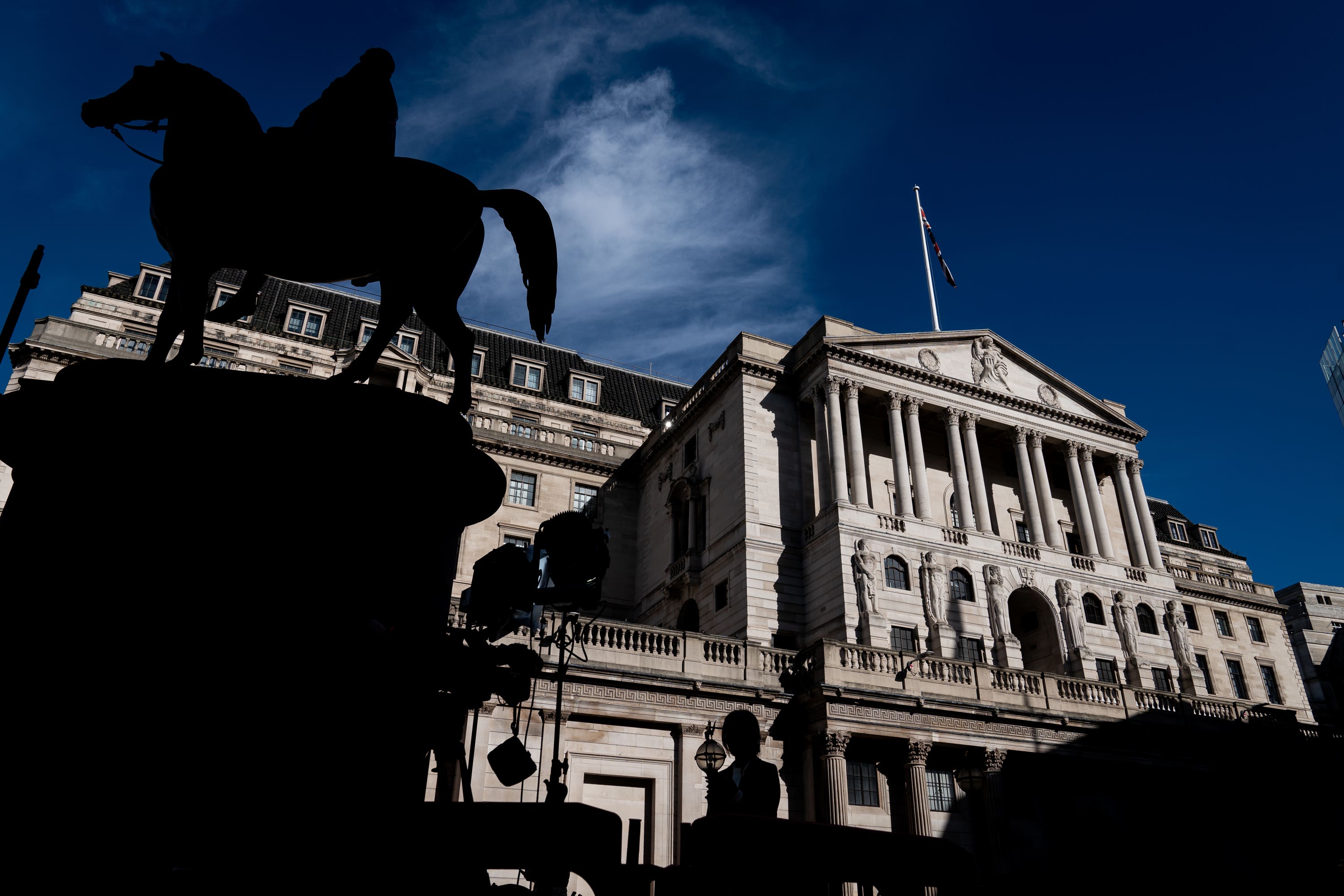Bank of England keeps interest rates the same despite inflation hitting target
The Bank’s governor, Andrew Bailey, said policymakers ‘need to be sure that inflation will stay low’.

Your support helps us to tell the story
From reproductive rights to climate change to Big Tech, The Independent is on the ground when the story is developing. Whether it's investigating the financials of Elon Musk's pro-Trump PAC or producing our latest documentary, 'The A Word', which shines a light on the American women fighting for reproductive rights, we know how important it is to parse out the facts from the messaging.
At such a critical moment in US history, we need reporters on the ground. Your donation allows us to keep sending journalists to speak to both sides of the story.
The Independent is trusted by Americans across the entire political spectrum. And unlike many other quality news outlets, we choose not to lock Americans out of our reporting and analysis with paywalls. We believe quality journalism should be available to everyone, paid for by those who can afford it.
Your support makes all the difference.The Bank of England has held interest rates at their highest level since 2008, despite UK inflation returning to its official 2% target last month.
The Bank’s governor, Andrew Bailey, said policymakers “need to be sure that inflation will stay low and that’s why we’ve decided to hold rates at 5.25% for now”.
The decision comes a day after official figures showed the rate of inflation hit the Bank’s 2% target in May for the first time in nearly three years, prompting the Prime Minister to declare “we’ve got there” after the milestone was reached.
However, some policymakers on the Bank’s nine-person Monetary Policy Committee (MPC) felt that “more evidence of diminishing inflation persistence was needed” before they could safely cut rates.
In particular, they felt that services inflation – which looks only at service-related prices such as hospitality and culture – had remained stubborn, and wage growth was rising faster than forecast.
But two members of the committee – Swati Dhingra and Dave Ramsden – voted for a reduction again as they argued that inflation looks set to remain at normal levels.
Furthermore, a summary of the MPC’s meeting revealed that, for other members, the policy decision was “finely balanced” because they felt services inflation was putting less pressure on the overall rate.
As part of the August forecast round, members of the committee will consider all the information available and how this affects the assessment that the risks of inflation persistence are receding
It indicates that the policymakers were somewhat split on the economic data.
“As part of the August forecast round, members of the committee will consider all the information available and how this affects the assessment that the risks of inflation persistence are receding,” the MPC summary read.
Meanwhile, the latest decision comes two weeks before the UK holds its General Election, but policymakers stressed that the timing of the election was “not relevant to its decision” on rates.
Chancellor Jeremy Hunt said on Wednesday that he was hoping mortgage costs would start to come down soon.